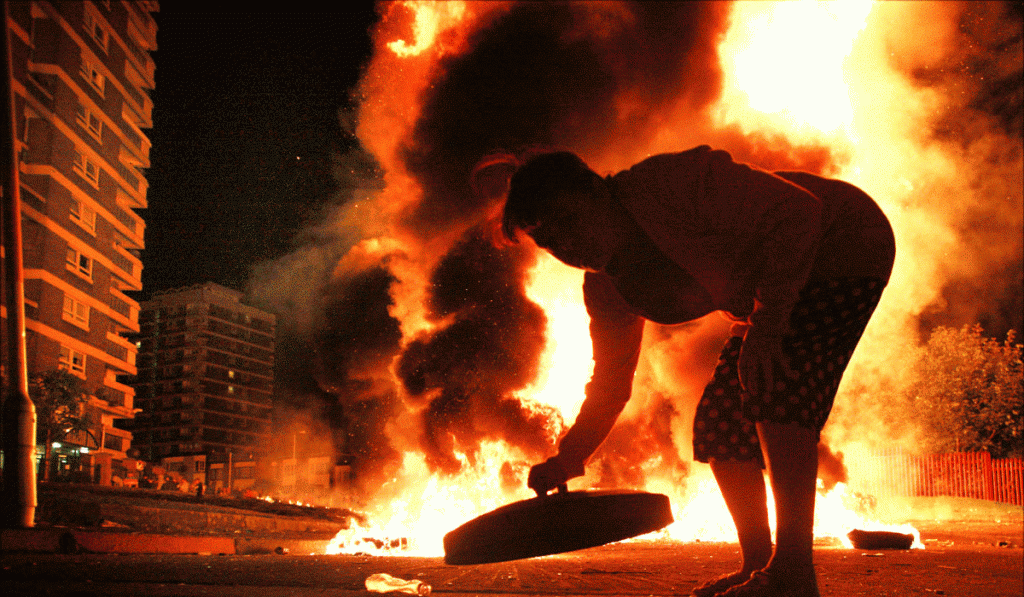Jan Freytag is a PhD student at Ruhr-University-Bochum, Germany, and is currently doing research on the ‘Prison Protests 1976-1981’ during a period when the British government ended internment and opted for a policy of ‘criminalisation’. In this feature Jan looks at some of the British cabinet papers from 1971 which actually reveal that the British government was aware from the outset of the dangers of interning ‘political prisoners’ (its terminology) and preferred the use of prosecution and conviction through (special) courts, as if that would change the nature of the conflict.

The introduction of internment in August 1971 was a turning point in the conflict and has been considered from many different vantage points. However, until recently it was not possible to consider how the British Cabinet discussed this measure and what conclusion it drew from its failure. Looking at its papers of 1971, this articles poses three questions. When was internment first considered? How did the perception of internment change? What conclusions were drawn from its failure by the Cabinet?
Stormont and Westminster
The discussion on internment emerged before August 1971. In February of that year the Stormont government replied to the British Home Secretary that it was prepared to introduce internment if the security forces British army asked for it. In the ensuing cabinet discussion it was agreed that internment could only succeed “if the terrorist leaders could be identified and arrested” (CAB 128/49/9 9th February 1971). Furthermore, these measures were liable to create “a category of political prisoners whose arbitrary treatment might be held to justify reprisals in the form of kidnapping and the seizure of hostages” (ibid).
In July 1971, Faulkner came under increased pressure from right wing elements in his own party, because as it seemed he was not standing firm on ‘terrorism’. Therefore he asked the British government to introduce more drastic military measures. Due to Faulkner’s apparent weakness, the authorities in London “had to seriously contemplate to institute direct rule in Northern Ireland” (CAB 128/48/25 23rd July 1971).
British Disenchantment
Only a few months after its introduction the British Cabinet became increasingly disenchanted with internment. Although British Prime Minister Edward Heath claimed that internment had been a success, purportedly because “about half of the leadership of the Irish Republican Army had been apprehended” (CAB 128/48/26 17th August 1971), it became apparent in the following months that it was more of a problem than a solution to the conflict.
During a cabinet meeting in September 1971 the opinion was voiced that arresting mainly members of the Catholic-nationalist community was a problem: “It was important that security measures, including any further arrests (…), should be seen impartially directed against all who constituted a danger to law and order” (CAB 128/48/27). Of course, it was February 1973 before the first loyalist (out of 107 in total) was interned, against the figure of 1,874 for republicans.
Later in September 1971 the Secretary for Defence admitted that, “The Security situation was equally discouraging. It was too early to say that internment had failed. But it was known that recruitment to the Irish Republican Army (IRA) in the Republic of Ireland was rising” (CAB 128/48/29 22nd September 1971). Despite his insistence that internment had not yet failed, Edward Heath admitted a couple of days later that “[p]ast Policy in Northern Ireland is in ruins. Given the cost of the present troubles in lives and money British opinion is liable to become increasingly disenchanted” (CAB 129/58/24 30th September 1971).
Learning from failure?
After admitting the failure of internment, the Cabinet did not consider abandoning it but rather to amend it legally. Approximately two weeks after Edward Heath had admitted the failure of internment, he dispatched another three battalions to the North in order to “make full use of intelligence which had been received as a result of internment” (CAB 128/48/31 12th October 1971).
In spite of the continuation of internment, the cabinet came to realise that “there would be obvious political advantages if further IRA suspects could be charged with offences rather than interned. It was for consideration whether the need for recourse to internment might be reduced by creating (…) special courts” (CAB 128/48/30 29th September 1971).
Internment in the British Cabinet Papers
As it can be observed from the sources compiled in this article, the cabinet papers offer a unique perspective into the thoughts of British politicians and help to reconsider internment. In fact, internment as a measure to restore law and order was considered much earlier than August 1971 and was therefore not an ad-hoc measure. Furthermore, the British Cabinet was well aware of its flaws and became increasingly disenchanted with it. However, they lacked the courage to abandon it completely.
As it can be observed from the sources compiled in this article, the cabinet papers offer a unique perspective into the thoughts of British politicians and help to reconsider internment. In fact, internment as a measure to restore law and order was considered much earlier than August 1971 and was therefore not an ad-hoc measure. Furthermore, the British Cabinet was well aware of its flaws and became increasingly disenchanted with it. However, they lacked the courage to abandon it completely.
As a consequence, the cabinet discussed the legal amendment of internment which can be seen as a precursor to the coming prison conflict, beginning with the withdrawal of Special Category Status in 1976, leading to the 1981 hunger strikes and the defeat of ‘criminalisation’.




